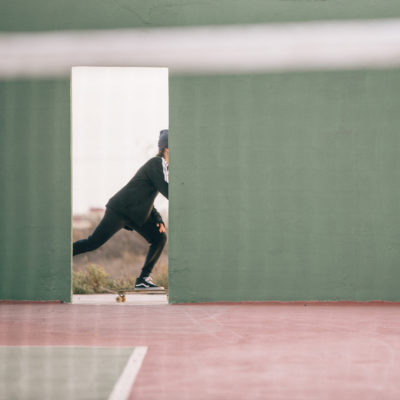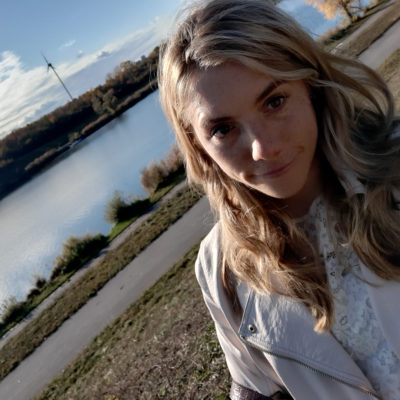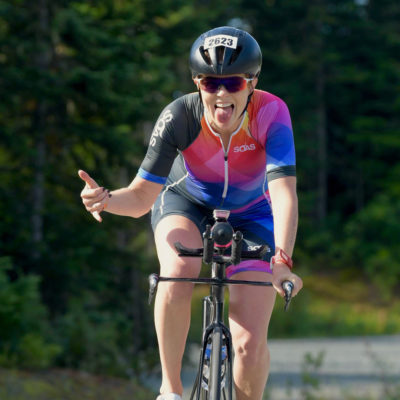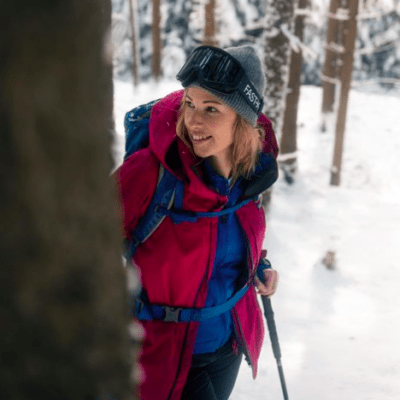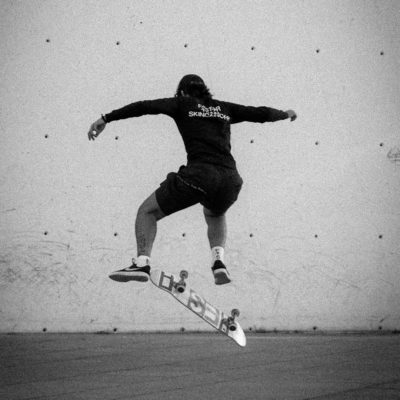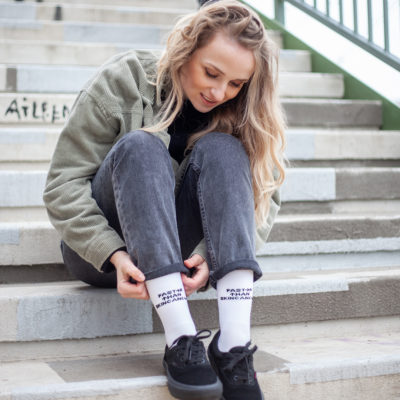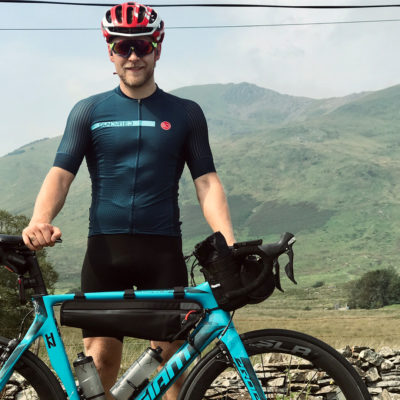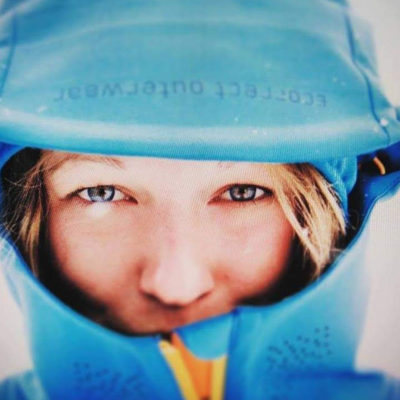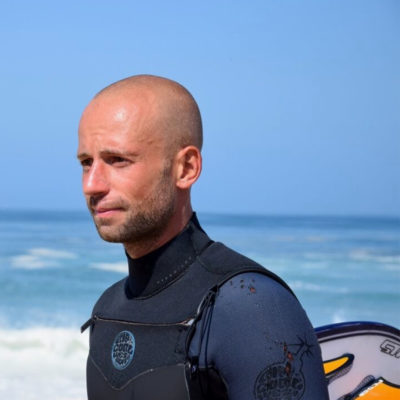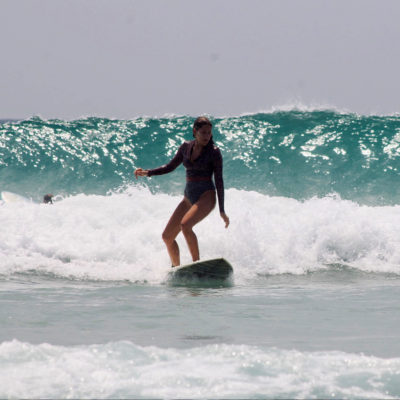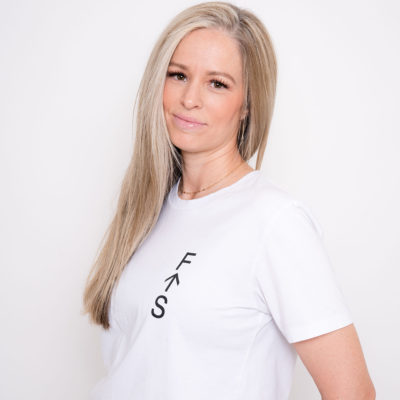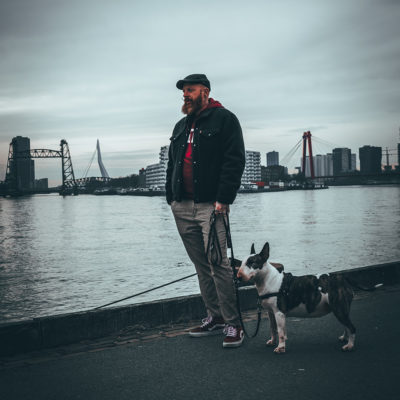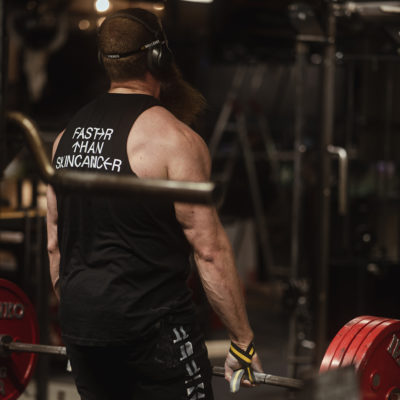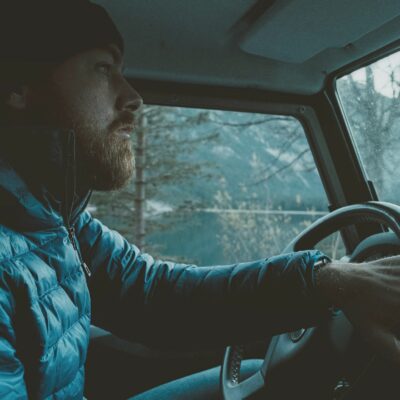Faster Than Skin Cancer
Inicjatywa mająca na celu zwiększenie świadomości na temat raka skóry
Każdego roku coraz więcej (↑) osób diagnozowanych jest z czerniakiem i innymi rodzajami raka skóry. Rak skóry znajduje się obecnie w pierwszej trójce (↑) najczęstszych rodzajów nowotworów wśród młodych dorosłych. Wiele osób nie podejmuje działań zapobiegających (←) rakowi skóry i nie sprawdza zmian na swojej skórze, mimo że wczesne wykrycie może być kluczowe.
Niezależnie od tego, czy jest lato, czy zima, przez cały rok...
...dążymy do zmniejszenia liczby nowo zdiagnozowanych przypadków raka skóry (↓), a kiedy profilaktyka zawiedzie, stawiamy na wczesne wykrycie (←), zachęcając Cię do:
Chroń swoją skórę przed uszkodzeniami spowodowanymi słońcem
Zwracaj uwagę na podejrzane zmiany na swojej skórze (->) szybko
Rozpocznij rozmowę na temat raka skóry
Spot the Dot połączyło siły z tymi, którzy już cieszą się z bycia szybkim
Poznaj niektórych z naszych międzynarodowych ambasadorów, używając strzałek


MD Pedro Rodriguez, Surgical medical dermatology, Hospital Universitario la Princesa and Clínica Dermatologica Internacional-> paddel tennis, surfing
Spain
Skin cancer: it's right there, do not let it beat you!
Melanoma incidence has risen more than 10-fold in recent decades. On age related cancers, melanoma is the #1 most diagnosed cancer among 25 to 29 year olds, however this age group does not usually go to skin checks. When melanoma is confined to the most superficial layer of the skin, the epidermis, (eg, melanoma in situ) is generally cured. For people with invasive melanoma, five-year survival rates average over 90 percent. Survival rates depend on the stage of the disease at the time of diagnosis, and survival declines steadily as tumor depth increases. When I diagnose a melanoma in a patient I feel frustrated when I hear that it has been on the patient's skin for a few months or years. Getting regular skin checks from a dermatologist can actually change the prognosis of your cancer.
I spend a lot of time outdoors. Despite always using sun protection, my dermatologist had to remove several birthmarks. That's why I keep a close eye on my skin, especially on new dark or specially shaped dots.
Julia -> Wildwater Canoeing, Veterinarian and double vice-European champion in whitewater canoe slalom
Photo 2 Balint Vekassy
Act before, you can only react! With this motto in mind, I try to live my life particularly conscious and healthy. As a veterinarian and professional athlete, I know what environmental influences our bodies are exposed to every day. The skin, our largest organ, is completely exposed to the increasingly aggressive UV radiation if we don't protect it. To protect myself from sunburn and cell degeneration, I do not only use a sunscreen with SPF 30 when practicing my sport on the water, but far beyond. I use it nearly 365 days a year, because health should not be left to chance.
As a dermatologist, it’s my job to recognise and treat skin cancer. Your job is to take responsibility for yourself and your loved ones. You can do this by raising awareness, planning self-examinations and regular skin-checks by a specialist. Furthermore, it is very important to use sunscreen to protect you from harmful sun exposure, for body parts you can’t cover with your wet-suit. (→) Always surf safe!
Colette ->Triathlon and Trail Running
Canada
As a triathlete and trail runner, I spend a tremendous amount of time outside. I am vigilant about wearing sunscreen but I did not take enough precautions to protect myself from the sun in my teenage years and early 20’s. I wish I could go back and have a conversation with my younger self about skin cancer. I was diagnosed with melanoma (in situ/stage 0) in October 2020. Melanoma is aggressive and can be deadly because it can spread quickly...unless you catch it early like I did. Please check your skin! I feel like I was just grazed by a bullet and I hope by sharing my experience and sparking a discussion about skin cancer that others can dodge that bullet too.
Benjamin Karl, Olympic medalist and seven time World Cup winner -> Snowboarding
Austria
Hey everyone, I'm a professional snowboarder and (just like everyone else) I am at risk of developing skin cancer myself! To protect myself from this, I go to my dermatologist for skin examinations several times a year. Early diagnosis can save lives, so go ahead, spot your dots!
Urte -> Basketball
Photo by Justina Speirokaite
Lithuania
There is always a player who refills water bottles during the breaks use this moment to remind everyone to (re)apply sunscreen. (->) Take care of each other!
Dette -> Trail running
Austria
Staying healthy gives us the freedom to run up there. We should care about the ones we love as well as about ourselves. So that we can stay free.
Irina -> BMX, UCI Flatland World Champ 2019
Photo by Manuel Peric
Austria
Before I go outside to ride my BMX (→) I always put sunscreen on and take my hat with me. I take protecting my skin from the sun very seriously and get my preventive medical checkup at the dermatologist once a year.
"I love the Water! I`m a true summer girl at heart. As a sermatologist, skin and sun protection are an important topic for me. Sun makes us happy, but a lifetime of sun exposure can cause wrinkles, age spots and it increases the risk of skin cancer. sun+ skinprotection -> Vitamin Sea"
The truth is that I was not a very cautious person in terms of sun protection during skateboarding, besides that the cap always goes with me to protect my face. Until recently I never bothered to check my skin. Only when a friend told me about the spot the dot campaign I have done a little research on melanoma and I know I will start doing so now! People should know more about skin cancer as it is an important topic.
In our line of sports, we are always outside on the water. We still see too many people on the water with sunburn. We wear wetsuits, but obviously our face is not protected from the sun. We hope that together we can motivate more people in the sailing community to wear sunscreen and to do regular skin checks.
Andrew -> Skateboarding
Romania
Even though I am only 20 years old, I had to see two of my friends die from cancer, one of skin cancer. He was too late to notice the skin cancer and to see a doctor. Right now I'm pretty careful myself, I visit the dermatologist for a skin check every year, and I make sure to always use sun protection when I skate outside.
Eva -> Roller skating
Photo by Christian Wallner
Austria
My passion for roller skating started when I discovered roller derby about 4 years ago. Protecting your skin is important. Never forget to spot your dots, even when you‘re just focused on the sport itself. Let’s raise awareness together (→) better skate safe than sorry!
A few years ago, a friend who was a physiotherapist, pointed out a tiny spot on my lower leg and told me to have a dermatologist look at it. I took up his advice and for the first time in my life I did a skin check. To make a long (medical) story short, that spot which looked so innocent to me, was already a far progressed melanoma. In the following years, I heard so many misconceptions about skin cancer from people around me, which made me realize that there is such a big need to raise more awareness around this topic. Hearing these misconceptions motivated me to start my own foundation and Spot The Dot was born.
Since a friend of mine got diagnosed with melanoma a few years back, I finally started to do regular skin checks.
Lewys -> Cycling
United Kingdom
Living in the UK, I’ve always been bad in putting on sunscreen as “it’s never that sunny over here”. I burn fairly easily however, so Spot the Dot has changed that outlook for me completely. I am regularly checking UV figures now and will wear Pelotan (discovered via Spot the Dot, which has been a game changer) for my rides or anytime I know I’m in the sun to be honest. Great cause to get behind!
Many cyclists see their tanlines as a badge of honour... a testament to how much they have been out riding. As an endurance cyclist, I love to spend long days out on the bike, but I think it's important that cyclists take precautions, cover up and wear SPF. It´s always easy to think it won´t affect you but both my mom and a close friend had melanoma. I´ve also had two moles removed as a precaution. So let's worry less about tanlines, and put on some sunscreen!
Hanna -> Windsurfing
Austria
I have a deep personal connection with this topic, because the sport that changed my life tremendously, was introduced to me by the father of my best friend, who passed away due to skin cancer three years ago. All windsurfers are in the sun a lot, I would advise them to avoid the midday sun as much as possible (←) because it is even stronger on the water. I always wear a wetsuit with long arms and long legs and use sun protection with a high SPF.
At the age of 13 I already had three operations behind me in which a large brown mole on the right lower abdomen was removed (luckily it was benign, meaning that it was not cancerous). What remains is a big fat pink scar, which is ofcourse never visible from underneath my snowboard clothing. I have to admit, the last time I went to see a dermatologist for a skin check was four years ago. This Spot the Dot campaign motivated me to make an appointment right away!
I am in love with nature. Waves, snow, mountains, rocks ... whatever makes you happy, enjoy it as much as possible! But (!) no matter whether summer or winter, always enjoy it with proper sun protection! So that we can still run up the mountains together at the age of 90. Better safe than sorry!
Rick -> Jiu Jitsu
Luxembourg
On the Jiu Jitsu mats we are really close to each other’s skin, however I never paid attention to changes on my own skin before (→) from now on I will definitely try to spot my dots!
Dr. Lisa Veith-Gruber, General Practitioner, specialized in Sports Medicine, Nutritional Medicine and Rehab/Preventative Medicine , representing Surfing Medicine international for Austria. -> snowboarding, surfing, skateboarding, windsurfing, mountain biking
When you think of protection related to your sport, like wrist guards or knee pads or back protection, don’t forget about your skin! Know your skin type, know your most exposed parts of your body, know the power-hours of the sun and protect also your skin, you only have one!
When my daughter Lio was born, I became even more aware of the importance of protecting her delicate skin, since she cannot do it herself. Let’s not be ignorant about the power of the sun, for ourselves and for our children. Lio was 6 months old when we took her to on her first surf trip to Sri Lanka. I made sure to apply sunscreen hourly, she would wear a little sun hat and we avoid the midday sun.
My journey, battling Stage IV metastatic melanoma for 7 years, changed my lifestyle. I am more aware of my body, it’s changes and how I handle going into the sun. I won’t allow skin cancer, to take away my freedom from this beautiful world, I enjoy nature and I find peace in a hike through the Arizona desert mountains. I wear sunblock everyday and never miss it. Don't forget to reapply every 2 hours!
For me as a mountain runner it was never about being the best or the fastest. It’s all about time. Time outside, time with the ones you love. The time you care about yourself.
Lennaert -> melanoma stage IIIC patient
Netherlands
In 2010, I went to see a dermatologist because of a mole that felt a bit itchy. The mole was removed and I never expected the news that the doctor gave me a week later. I have melanoma?! At first I didn't even know what it was exactly, but that became clear during the conversation. There I was, 35 years young and I had cancer. Meanwhile I still have metastatic melanoma cancer, stage 3C. I have had many treatments and operations as well as many ups and downs since. I try to make people aware of how to properly protect their skin against the dangers of the sun. Melanoma is no joke. Please check your skin, and the skin of the people around you!
Anna > Hiking, Snowboarding
Germany
In summer many people tend to wear sun protection, but especially in autumn and winter it is often neglected. I might get on the nerves of my friends, but I just hope the more we talk about it and explain it, the more people we can reach. I support Spot The Dot and Spot The dot Supports me. Thanks Marije!
Our kids learn everything about outdoor activities from a young age, using sunscreen to protect us from UV light is a very important part of the routine!
Only thinking about which descent to take and following my legs.. Winter sports are one of the best ways to relax for me. Finally my head is empty. But perhaps, sometimes a bit too empty, because applying SPF is often forgotten. Altitude, bright sun and reflection through the snow provide high doses of UV light, which causes skin cancer. Hopefully through this campaign we plant a seed in your mind, so that you use SPF the next time you ride through the snow (or any other day!). Because you may not notice it now, but I see the sun damage from 10-20 years ago on my patients skin every day…
Tim -> Skateboarding and Skiing
Austria
Actually no-one ever told me to check my skin and that’s probably the reason why I never did until now. Thank you Spot the Dot for the eye opener. I will definitely use more sunscreen on the mountain and I will check my dots from now on!
It doesn’t matter how strong you are, how badass you are in training or on the platform. There are some things, such as skin cancer that are stronger than you if you don't catch it early. So keep an eye on suspicious spots on your skin and go to your dermatologist for a skin check at least once a year.
Florian - calls himself a rebel of postmodern.
Surfing, skateboarding and motorbiking determins his everyday life.
Photo by Michael Bloch
A short time ago I had a serious diagnosis: tumour in the right side of my face. It's crazy how quickly life can change. Today I am healthy again and enjoy every day even more than before. Due to my nordic skin type, I can't give the sun any chance and I can only advise you: Spot your dots!
Jak być szybszym niż rak skóry
Nie ma nic, co kochalibyśmy bardziej niż bycie na świeżym powietrzu i cieszenie się słońcem, czy to na rowerze, podczas biegania, surfingu, narciarstwa czy jakiejkolwiek innej aktywności na świeżym powietrzu. Chcemy jednak zapewnić, aby ludzie mogli doświadczać tej radości bez problemów w przyszłości.
Nie lekceważ niebezpieczeństw związanych z byciem (aktywnym) na słońcu bez ochrony skóry. Uszkodzenia skóry, które teraz ponosisz, zwiększają ryzyko zachorowania na czerniaka i inne formy raka skóry w późniejszym życiu. Dobrą wiadomością jest to, że kiedy czerniak jest wykryty we wczesnym stadium, szanse na przeżycie są wysokie (↑), ale czerniak rozprzestrzenia się stosunkowo szybko (→), a przeżywalność w przypadku czerniaka w stadium przerzutów jest bardzo ograniczona (↓).
Dlatego pamiętaj o następujących kwestiach:
→Światło UV jest najbardziej preventywnym czynnikiem ryzyka dla wszystkich rodzajów raka skóry. Ekspozycja na słońce jest nieunikniona w wielu sportach na świeżym powietrzu; jednak zachęcamy wszystkich do ochrony skóry przed szkodliwym światłem UV w sposób, który najlepiej im odpowiada.
→Badaj swoją skórę od stóp do głów co miesiąc. Samoobserwacja NIE powinna zastępować corocznego badania skóry przeprowadzanego przez lekarza, ALE daje najlepszą szansę (↑) na wykrycie wczesnych oznak raka skóry. Jeśli zauważysz jakiekolwiek zmiany w istniejącej pieprzyku lub odkryjesz nowy, który wygląda podejrzanie, dla bezpieczeństwa (→) skonsultuj się z lekarzem.
→
Upewnij się, że zaplanujesz coroczną wizytę kontrolną u dermatologa. Pamiętaj, że czerniak rozprzestrzenia się stosunkowo szybko (→), a przeżywalność w przypadku czerniaka w stadium przerzutów jest bardzo ograniczona (↓). Wczesne wykrycie może być kluczowe i uratować życie.
FTS x Willpower Cap
Spot the Dot to organizacja non-profit założona w 2015 roku i prowadzona przez holenderską pacjentkę z czerniakiem, Marije Kruis. Organizacja współpracuje z międzynarodowymi artystami, sportowcami, pacjentami z rakiem skóry oraz dermatologami, aby zwiększać świadomość na temat czerniaka i innych rodzajów raka skóry. Ich wspólna misja to zaproszenie do ważnych rozmów zarówno z najbliższymi, jak i z lekarzami, podkreślając znaczenie działań zapobiegawczych oraz wczesnego wykrywania raka skóry.
Uwaga: Informacje zawarte w tej publikacji nie zastępują profesjonalnej porady medycznej ani badania lekarskiego. Nie promujemy ani nie polecamy żadnego leczenia. Zawsze zasięgaj porady od swojego konsultanta, lekarza rodzinnego lub innego wykwalifikowanego specjalisty przed rozpoczęciem leczenia.




